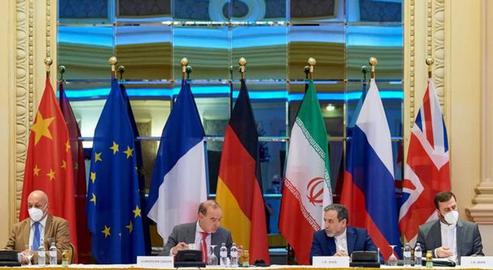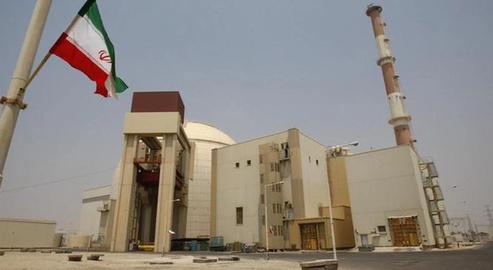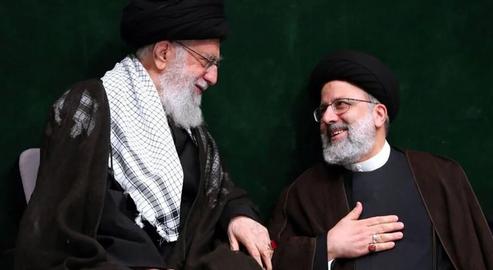And so, in the end, Hassan Rouhani’s government has also succumbed to "unfinished talks syndrome". A spokesperson for the Rouhani administration this week confirmed that no further talks on reviving the JCPOA would take place before the incumbent leaves office on August 15, despite all the progress made to date. With a month left to go before the transfer of executive power, the question remains: why not? Why should a fourth administration in the Islamic Republic take charge of the nuclear question?
**
Hassan Rouhani's long-time spokesman, Ali Rabiei, told reporters that unelected elements of the Iranian state are responsible for the decision not to engage in further nuclear talks.
A committee of Iran’s Supreme National Security Council was responsible for adapting the draft agreement to revive the JCPOA to an upcoming parliamentary bill, by the unwieldy name of Strategic Action Plan for Lifting Sanctions and Protecting the Interests of the Iranian Nation. But the committee has now said the agreement is not compatible with the bill. It is worth mentioning that several of its members have a good chance of securing a place in Ebrahim Raisi’s future cabinet.
Rouhani’s negotiating team has thus been barred from announcing a formal acceptance of the agreement by Iran. As such, negotiations in Vienna are off the table – if, indeed, they ever were on the table – until Raisi takes office.
Ayatollah Khamenei himself has said these types of decisions are not for Iranian governments to make, but for the whole of the ruling structure. It therefore comes as little surprise that the JCPOA has been taken away from them. But at the same time, given the limited powers of all presidents and the fact that Khamenei himself will make the final call, what difference does it make whether talks on the JCPOA are postponed or not?
The Iranian Nuclear Decision-Making Chain
For the past two decades, internal decision-making over the nuclear issue in Iran has run thus: Ayatollah Khamenei sets out general policy, the policy is raised and ways to implement it voted on in the Supreme National Security Council, and the Council’s proposals are sent back to Khamenei for approval. In other words, it is a closed loop, and nothing is possible without the Supreme Leader’s consent.
In some sensitive cases, this council is actually convened in the presence of Ayatollah Khamenei. During the unprecedented, direct negotiations between the Islamic Republic and the US between 2013 and 2015, these special meetings were held many times due to the gravity and need for haste.
This time, though, the talks have been sluggish, and since April 2021 some tweaks seem to have been made to the decision-making process. For one thing, Mohammad Bagher Ghalibaf, speaker of the Iranian parliament and a member of the Supreme National Security Council, has frequently appeared to be unaware of major decisions on the nuclear issue. Mohammad Javad Zarif, a member of the Council by dint of being foreign minister, has not been allowed to present his initiatives. Representatives of Iran’s elected institutions seem to be frozen out.
Last month Abbas Araghchi, the Islamic Republic's chief nuclear negotiator, claimed – possibly prematurely – that an agreement to revive the JCPOA had been finalized. The announcement came just days before Raisi was elected Iran’s next president on June 18. Around the same time, though, Zarif also made an unusual statement while on state business in Antalya, Turkey: he, too, said he had seen the agreement and considered it appropriate. His role as foreign minister appeared to have not afforded him any kind of a prior role in the 2021 negotiations.
Is the Decision Iran’s to Make?
The recent negotiations in Vienna also took place in the presence of a more limited audience. Before they began, Khamenei also again publicly stated his terms: no direct dealings with the US, and the lifting of sanctions must be verified before Iran will stop enriching uranium to 60 percent purity.
Ramping up nuclear enrichment to “increase bargaining power” has been a hallmark of Khamenei’s nuclear policy for years. Instead, though, it has led to the sabotage of facilities like Natanz and the assassination of Iranian nuclear scientists. Iran’s actual nuclear production capacity is unclear. In the meantime, the US has said that whatever the outcome of the JCPOA talks, it will retain some key sanctions – such as those against Ayatollah Khamenei and certain other human rights abusers.
Had the Rouhani administration been able to see the JCPOA back into force, it would have come under much the same criticism as it did the first time around. The same will go for Raisi, whether or not economic sanctions are lifted on his watch. The difference is that, with Raisi’s hardline and anti-Western stance, even fewer concessions will be secured for Iran than before. That may be just how the Supreme Leader wants it.
Related coverage:
Why did Hassan Rouhani Blame Sanctions on 'Disrespect' for the Iranian Constitution?
Zarif's Farewell Letter to Parliament Reveals Obstacles Blocking a JCPOA Return
Nuclear Acceleration and Rocket Attacks: The Uncertain Future of the JCPOA
Uncertain Future for Nuclear Deal as Rouhani’s Presidency Comes to an End
Iran Sets Out Conditions for the Revival of the Nuclear Deal (At Least on Paper)
What Will 60 Percent Nuclear Enrichment Do to Iran’s Future?
Iranian Parliament Publishes Two Cynical Reports About the Nuclear Deal
Nuclear Confrontation, Khamenei’s Gift to Iran
What are the Consequences of Iran’s Higher Rate of Uranium Enrichment?
What Do We Know About the Nuclear Watchdog’s Cameras in Iran?



























comments